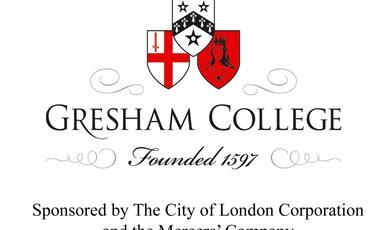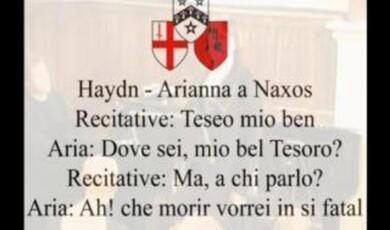A Cause for Carolling
Share
- Details
- Text
- Audio
- Downloads
- Extra Reading
For the first eight decades of the 18th century, 'While Shepherds Watched' was the only Christmas hymn authorised for use within the Church of England. Because of this, hundreds of different tunes became attached to the words of this iconic carol.
With the support of live musical examples, the importance to Christmas Past and Present of our festive favourites will be examined.
Download Text
10 December 2014
A Cause for Carolling
Jeremy Summerly
The origin of the words ‘God rest you merry, gentlemen’ is lost in the mists of time. But by the very beginning of the nineteenth century the verses had started to appear in print, in the chap books of the day. Chap books were sold by chapmen, who were peddlers of popular literature. Pocket-sized pamphlets of just a few pages each were a common format for the printing of nursery rhymes, folk tales, and children’s stories, as well as Christmas carols. But the production of chap books stopped in the mid-nineteenth century when newspapers flooded the market. The ephemeral nature of the medium meant that chap books didn’t last for very long, although at a cost of half a day’s wage for the average working man, a chap book wasn’t overly cheap. Chap books were designed to be bought by those who didn’t have libraries in their homes, and these flimsy booklets frequently ended up as baking paper or wrapping paper. Here’s the version of London’s favourite early-nineteenth century carol as printed by Joseph Smart in Wolverhampton:
God rest you merry Gentlemen,
Let nothing you dismay;
Remember Christ our Saviour,
Was born on Christmas-day;
To save our souls from Satan’s power,
Which long time had gone astray;
This brings Tydings of Comfort and Joy.
Aside from the extra syllable in the sixth line (solved these days by singing ‘When we were gone astray’), Smart manages to duck one of the hottest issues in the carol world. There should be a comma in the first line of this carol, and it should be placed after the word ‘merry’, although over the years it has frequently been erroneously placed after ‘you’. The carol doesn’t address ‘merry gentlemen’; it addresses ‘gentlemen’. These gentlemen are the Palestinian shepherds to whom the angels announced the birth of Christ. The carol offers comfort to the shepherds. It urges that the shepherds rest merry; in other words that they remain merry; in other words that they shouldn’t be afraid. ‘God rest you merry, gentlemen’ is the correct punctuation. By leaving the comma out entirely, Joseph Smart, whether by luck or by judgement, manages not to get sucked into the scandal that is Commagate.
One Christmas hymn has attracted far and away the largest number of tunes of any Christmas carol. Indeed it is still alive and well today in a number of musical versions. The words to ‘While shepherds watched’ were published for the first time in 1700. Although it has been assumed that the Poet Laureate, Nahum Tate (c1626 - 1715), wrote the words, it is probable rather than definite. In 1696, Tate and Rev. Nicholas Brady (1659 - 1726), also an Irishman, compiled the New Version of the Psalms of David. Brady was chaplain to King William III and Queen Mary, and this New Version was designed to replace the ‘Old Version’ of Sternhold & Hopkins, although it took over a century to do so comprehensively. A supplement to the New Version was published four years later, in 1700, and it contained sixteen hymns, one of which was headed ‘Song of the Angels at the Nativity of our Blessed Saviour’, a paraphrase of verses 8 - 15 of the Second Chapter of St Luke’s Gospel (‘And there were in the same country shepherds abiding in the field…’):
While Shepherds watch’d their Flocks by Night
all seated on the Ground,
The Angel of the Lord came down,
and Glory shone around.
It’s easy to mock the work of a Poet Laureate of three centuries ago, especially one who re-fitted Shakespeare’s King Lear with a happy ending. But the words of ‘While shepherds watched’ have endured for generations. Of course, they might not be by Tate at all, but he had the good sense to publish them, whether they were his or not. And for the first eight decades of the eighteenth century, ‘While shepherds watched’ was the only Christmas hymn authorized for use in the Church of England. Yet the words appeared without melody in the New Version of 1700, so the desire to standardize its performance by linking it to an appropriate tune was inevitable. The famous ‘Winchester Old’ tune was fully formed, widely disseminated, and ready to go. And in 1708, the ‘Winchester Old’ tune appeared in A Supplement to the New Version of Psalms by Dr. Brady and Mr. Tate…The Sixth Edition, Corrected; and much Enlarged. So from 1708 the words and tune were bound together under a single cover, even if not side by side. It’s therefore not surprising that ‘Winchester Old’ has become the tune to which this carol is most often sung today. But the ‘London tune’ of ‘God rest you merry, gentlemen’ was also an obvious contender. Indeed the major-key version of the ‘London tune’ has also had a good run over the years as an alternative tune to ‘While shepherds watched’. Yet in some parts of the North of England, only ‘Cranbrook’ will do. ‘Cranbrook’ is better known as the tune to the Yorkshire folk song ‘On Ilkley Moor bart’at’. ‘Cranbrook’ was composed by Thomas Clark (1775-1859), a Canterbury shoemaker. The tune was first published in 1805 in A Sett of Psalm and Hymn Tunes to the words ‘Grace, ’tis a charming sound’, and ‘Cranbrook’ remains the tune of ‘While shepherds watched’ about which its supporters are most avid compared to other fans of different tunes. Yet literally hundreds of musical settings have been composed to fit the words ‘While shepherds watched’, although the majority are parochial both by locale and calibre.
‘While shepherds watched’ retained its authorized monopoly over the Christmas hymn market from 1700 until 1782. In 1782, Cambridge University Press published a new edition of Tate & Brady’s New Version of the Psalms of David and it included the words to ‘Hark, the herald angels sing’. This had originally been published by John and Charles Wesley in 1739 as ‘Hymn for Christmas-Day’. Charles Wesley’s version in Hymns and Sacred Poems began slightly differently to the version we know now. On the left is Wesley’s 1739 version (‘welkin’ is an archaic term for ‘sky’ and ‘heaven’), and to the right is George Whitefield’s 1753 version:
Hark how all the Welkin rings Hark! the Herald Angels sing
“Glory to the King of Kings, Glory to the new-born King!
“Peace on Earth, and Mercy mild, Peace on Earth, and Mercy mild,
“God and Sinners reconcil’d! God and Sinners reconcil’d.
George Whitefield (1714 - 1770) – pronounced ‘Wit-field’ – was a Calvanistic Methodist leader. He was teased at school for his squint and for his penchant for writing sermons. But everything came into focus when he was ordained priest in 1739, after which he became ‘the eighteenth century’s most sensational preacher in Great Britain and America’, according to Professor Boyd Schlenther. ‘Hark! the Herald Angels sing’ is one of four hymns for ‘Christ’s Birth’ that Whitefield included in A Collection of Hymns for Social Worship.
In spite of the (quite understandable) antipathy of the Wesley brothers towards those who would tamper with the words of their hymns, the Rev. Martin Madan (1726 - 1790) did just that in A Collection of Psalms and Hymns of 1760. Madan is best known for his later advocacy of polygamy, but he was a priest, barrister, and useful musician. To the left is Wesley’s original; to the right is Madan’s alteration:
Joyful all ye Nations rise, Joyful all ye Nations rise,
Join the Triumph of the Skies, Join the Triumphs of the Skies;
Universal Nature say With th’angelic Host proclaim,
“CHRIST the LORD is born to Day! “CHRIST is born in Bethlehem!”
So ‘Hark the herald’ proved its resilience from an early stage, allowing alterations – even to its opening line – more or less from the outset. And it has proved fecund territory for the alteration of its words ever since. Nowhere was this more scurrilously proved than in December 1936, following the abdication of King Edward VIII a fortnight before Christmas. The servants’ quarters of Britain quaintly resounded to the chanting of ‘Hark the herald angels sing: Mrs Simpson’s pinched our king’.
The icing on the Christmas cake that is ‘Hark the herald’ was the addition of music by the German composer and darling of the British musical scene, Felix Mendelssohn (1809 - 47). Mendelssohn visited Britain ten times over an eighteen-year period. He met Dickens in 1844 – a year after A Christmas Carol was published – and was admired by Queen Victoria and fellow-German Prince Albert, whom Mendelssohn first met in 1842. And two years before that, Mendelssohn had sowed the seed for his music’s domination of the English carol scene, but without knowing it. 1840 saw celebrations in the east German town of Leipzig for the perceived quatercentenary of the invention of printing by Johannes Gutenberg (Leipzig was the centre of the German book world at the time). Mendelssohn was commissioned to write a Song of Praise (Festgesang) for the 1840 Gutenberg Festival, which he scored for male chorus with – and this sounds like a Christmas list – four French Horns, three trombones, two trumpets, and an ophicleide. At the second movement (‘Vaterland’), the chorus introduces the chorale-like figure that William Cummings (1831 - 1915), singer and musical antiquary, so cannily worked out could be adapted to fit the words of ‘Hark the herald’. In fact Cummings knew more than Mendelssohn himself on that score. Mendelssohn had considered adapting his highly specific ‘Gutenbergfest’ text to different words, but had said to the publishers, Ewer & Co., that ‘it will never do to sacred words’. How wrong he was. Cummings set to work in the late 1840s, fuelled by the experience of singing in the choir for the 1847 London première of Mendelssohn’s oratorio Elijah, which the composer himself conducted. Cummings eventually published the result in 1856; by then Mendelssohn was dead, never to know how much one of his occasional compositions was to influence the sound of all subsequent Christmases.
If a Christmas carol service in church doesn’t these days end with ‘Hark the herald’, then it will end with ‘O come, all ye faithful’. The first appearance of ‘O come, all ye faithful’ is as a Latin hymn in a manuscript dating from around 1740. Well over a century later it had fared so well that William Wallace Fyfe reported that ‘no carol is in more universal use’. Fyfe also said that ‘it is claimed by Roman Catholics, as peculiarly their own’. The earliest Latin version of the words is given here with a literal translation to the right:
Adeste fideles, Come near, faithful ones,
laeti triumphantes joyful, triumphant;
venite venite in Bethlehem. come, come, to Bethlehem.
John Francis Wade (1711/12 - 1786) was a Roman Catholic expert in plainsong, and is dubbed ‘Father of the English plainchant revival’. The earliest surviving source of ‘Adeste fideles’ is thought to be in Wade’s hand. For this reason it is also imagined that Wade may have been the composer of this Roman Catholic Christmas classic. That said, it is also possible (on circumstantial evidence and stylistic grounds – both of which are notoriously unreliable) that the composer was the Catholic-born Thomas Arne (1710 - 78), who later wrote the music of the British National Anthem and ‘Rule, Britannia’. Based on Wade’s fondness for Jacobite ornamentation in his manuscripts, Bennett Zon has made a case for the presence of a Jacobite subtext in ‘Adeste fideles’. Professor Zon believes that there may be a connection between ‘Adeste fideles’ and the 1745 Jacobite Uprising, instigated by Bonnie Prince Charlie, which culminated in a decisive Hanoverian victory at Culloden on 16 April 1746. It’s at least possible that the supporters of The Young Pretender might have been the ‘faithful ones’ of the hymn’s first line. What does seem clear, however, is that there is no specific link between ‘Adeste fideles’ and the country of Portugal. The carol was at one stage referred to as ‘The Portuguese Hymn’, but solely on the grounds that in 1795 the Duke of Leeds heard it performed in the chapel of the Portuguese Embassy in London. Indeed the carol was heard in many Roman Catholic establishments of the day, but the duke made the false presumption that the origins of the carol were bound to the location in which he himself happened to have heard it.
The first English translation of ‘Adeste fideles’ was made in 1841 by Rev. Frederick Oakeley (1802 - 80). At the time Oakeley was minister of Margaret Chapel, which was later to become All Saints, Margaret Street – an especially high Anglican church a quarter of a mile southeast of the BBC’s Broadcasting House in London’s West End. In 1845 Oakeley took, for him, the inevitable step and converted to Roman Catholicism:
Ye faithful, approach ye,
Joyfully triumphing;
O come ye, O come ye, to Bethlehem.
Rev. Francis Murray adapted it for publication in his 1852 Hymnal for Use in the English Church:
O come, all ye faithful,
Joyful and triumphant,
O come ye, O come ye to Bethlehem.
Whether ‘O come, all ye faithful’ was designed as a rallying cry for Jacobites, or as a more general Roman Catholic affirmation of faith, this eighteenth-century masterpiece has become an indispensable soundtrack to Christmas. Because of the angelic choral reference in its penultimate verse, generations of choir directors have attempted to write descants that angelically soar above Wade’s or Arne’s or Anon’s melody. Yet the tune is so masterfully well directed towards its end that no newly-composed descant, no matter how woeful, heinous, or woefully heinous, can stem the melody’s glorious flow. Whether in its original eighteenth-century Latin, or in Frederick Oakeley’s nineteenth-century English translation, this Christmas hymn is irrepressibly joyful and triumphant:
Cantet nunc io Sing, choirs of Angels,
chorus angelorum, Sing in exultation,
Cantet nunc aula coelestium: Sing, all ye citizens of Heav’n above;
Gloria in excelsis Deo! GLORY TO GOD IN THE HIGHEST:
Venite adoremus Dominum. O come, let us adore him, Christ the Lord.
© Jeremy Summerly, December 2014
Part of:
This event was on Wed, 10 Dec 2014
Support Gresham
Gresham College has offered an outstanding education to the public free of charge for over 400 years. Today, Gresham College plays an important role in fostering a love of learning and a greater understanding of ourselves and the world around us. Your donation will help to widen our reach and to broaden our audience, allowing more people to benefit from a high-quality education from some of the brightest minds.


 Login
Login







